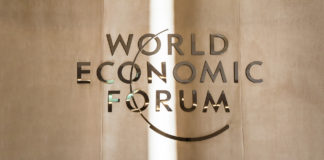COVID-19: How can we transform the crisis?
Tens of thousands of articles about the new coronavirus crisis are filling news outlets around the world these days. What is the crisis, how we go through it, what to do, how to do, when to do it etc. Only one thing seems certain these days: our uncertainty about the future. We would prefer an authority to go out in public and tell...
Diet rush: What should we eat in order to lose weight?
What should we change in our diets in order to lose weight? It is estimated that at least half of the female population—and a few men who are scared by their doctors, family, friends or what they see when they look in the mirror—want to lose weight.
A cure for loneliness
At the age of 34, Joseph already has his own business, into which he has invested much of his soul and talent. He is a carpenter, and the personality of the pieces he carves, chisels, polishes, and paints with his hands stands out beautifully. With each order he sends to a customer, Joseph takes some time to send a handwritten thank-you note. On...
Some still believe in education
Is it worth fighting for a better world? Is it worth believing that, in a world relentlessly subject to the laws of entropy, hope, good thinking, beauty will still have the chance to develop and enrich our life horizon through education? Can tomorrow's world be better than today's, when everything we hear seems to be so catastrophic, and everything we do seems to...
No laughing matter
We’ve all been guilty of memory lapses at times—forgetting a birthday or anniversary, that needed ingredient we were supposed to pick up at the grocery store, where we put our car keys, even where we parked the car. And mostly we just joke about these memory lapses and tease each other about them. However, for some 50 million people around the world who...
COVID-19: Beyond coincidence and bad luck: causes of animal to human virus transmission
In the midst of the COVID-19 pandemic, there are specialists who are not surprised by this crisis, and believe that in the future we could be facing other pandemics if we fail to fix the mistakes that led to an increase of animal to human pathogen transmission.
COVID-19 complications, during and after the disease
It will soon be two years since the virus known as COVID-19 started to roam around the world. The sad toll of this disease—over 5 million victims worldwide—is still incomplete, because we are far from seeing an end to the pandemic. It has been the largest public health crisis in the last century.
Twenty years ago, on salvation
When I was 20, my spiritual life felt like an exam where I had been given a topic I hadn’t prepared for.
COVID-19: A world beyond all human tragedies
Should we be optimistic or pessimistic about our future? This is a question even specialists are concerned with, and it cannot be answered easily. It is difficult to predict what the future holds.
A parallel world
It is interesting to see Louis Baragona's portrait of a modern witch. Although he was sceptical at first, Louis tells how Emily Grote, an elegant "psychic" from Brooklyn, New York, changed his life.
What about the 21st century?
Regardless of what is said about the predictive nature of the words traditionally attributed to Malraux—"The 21st century will be religious or it will not be"—the truth is that almost two decades of this century have passed, and we don't really know where we are going.
War does not carry toys in its backpack
When war steps out of the pages of history books and into the real world, it resonates with a harsh, cutting tone, becoming a seismic record of humanity’s darkest nightmares. The recurring faces of war’s hideous nature show that, no matter how advanced human civilization becomes, moral evil doesn’t disappear—it merely gets passed down from generation to generation, patiently waiting for the right...
The original meaning
Before I started looking for the meaning of life, I thought I had already found it. Or, that it had been given to me. In the world I came from, the road was clearly laid out. My life's major events were all mapped out, and precious little was negotiable.
The Great Reset: a revolution that has been proposed before
Every January, economic and governmental elites gather in their hundreds in Davos, the exclusive ski resort in Switzerland, where the World Economic Forum holds its annual high-level meeting. This year, because of the pandemic, the in-person meeting had to be rescheduled. But the controversies surrounding the meeting's theme – The Great Reset – were not postponed.
Life after lockdown: a return to the rat race?
On any given day, a typical person checks the clock several dozen times.


























